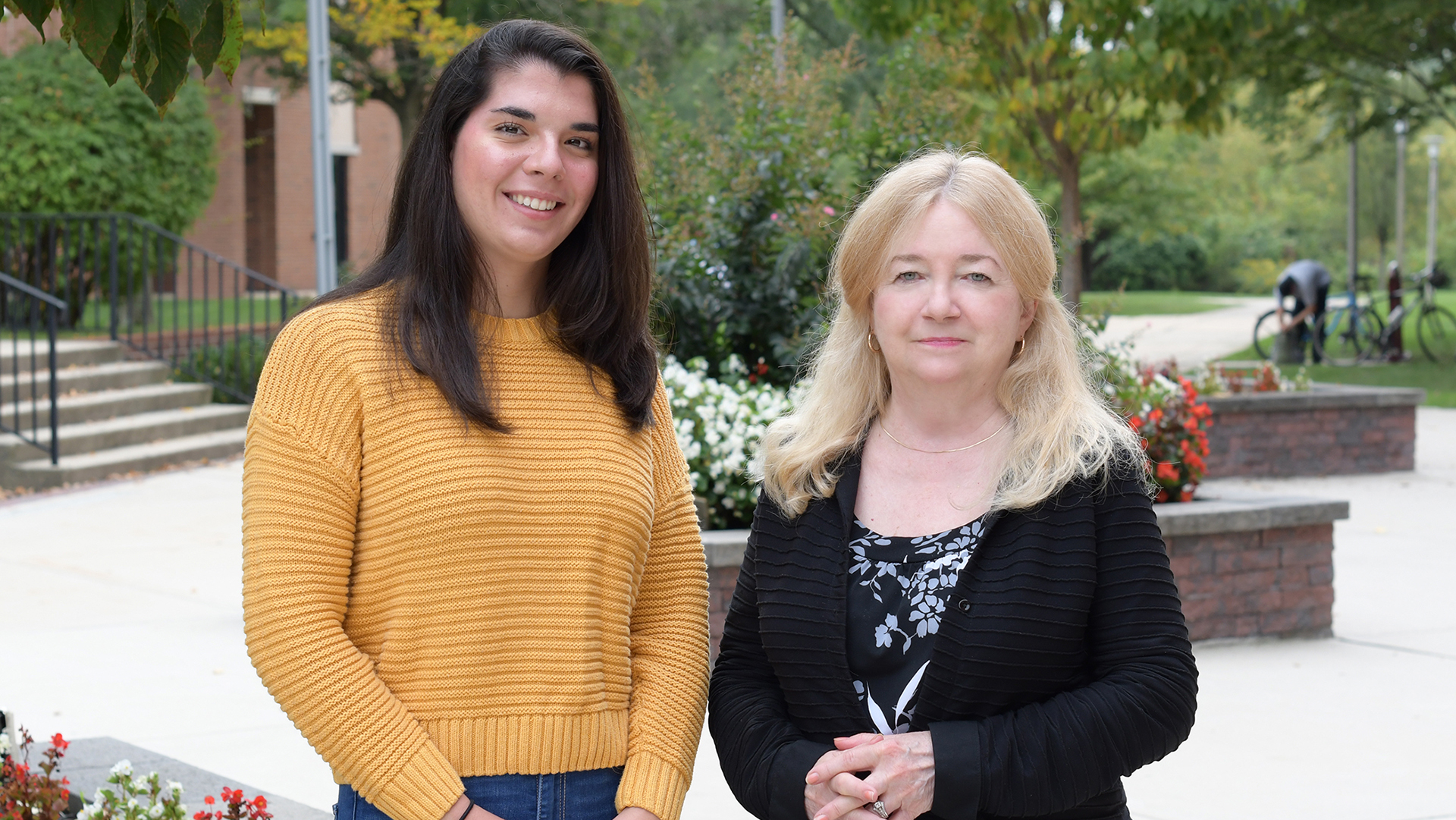Thursday, Oct 14, 2021
The opportunity to help nominate an individual or organization began with a new global studies course
by Adam Grybowski
As the news of this year’s Nobel Prizes rolled out this month, some Rider University students are already looking forward to next year’s announcements. That's because they played a role in selecting a nominee for the 2022 Nobel Peace Prize winner.
The opportunity to nominate an individual or organization began with a new class on the Nobel Peace Prize. It was offered, for the first time, last spring through Rider’s global studies program. In addition to learning about the history and purpose of the prize, students were tasked with persuading their classmates who deserved to be the latest recipient of the famous award.
This fall, their choice was submitted through an official nomination from an eligible Nobel Peace Prize nominator.
“Honestly, I still cannot believe it,” says Paola Carlesso, a sophomore double majoring in global studies and Spanish. “I never thought from a college course we could do something like this. It’s a bit surreal. We put so much effort into this over the months.”
Although their nomination is for the 2022 prize, four Rider students who took the course were given tickets to attend this year’s Nobel Week in Oslo, Norway, which takes place Dec. 6-12. Unfortunately, health protocols announced this month will restrict them from attending.
“I wanted to put together a course for a model student Nobel Prize, where students could research recent activism and social justice over time,” says Dr. Roberta Fiske-Rusciano, who taught the course.

I never thought from a college course we could do something like this.
The class began with about 20 different individuals or organizations students wanted to nominate. They were given the freedom to choose anyone they liked, as long as they aligned with the values and purpose of the Nobel Prize.
“It made me hopeful to know that there are people out there doing the work — and not because they are expecting recognition,” says Carlesso. “At the same time, it was draining because you were exposed to the real problems of the world. It was a mind-opening experience.”
Knowing their selection would ultimately be submitted as an official nomination raised the stakes of the class work. “When I heard this was going to be official, my jaw dropped,” says Sydney Tierney, a sophomore double majoring in French and global studies. “This was something real. We really had to buckle down. It made me very grateful that I was able to take this class.”
The list was cut in half once, and then twice. It was incumbent on the students to collaborate and refine their arguments to convince each other their choice was superior. The collaboration extended beyond the Rider students because the class, which was delivered remotely because of the pandemic, was held jointly with students and faculty from Notre Dame University in Louaize, Lebanon, via videoconference.
For many years, Fiske-Rusciano has been forging similar in Rider’s global studies program, various semester-long international collaborations with institutions around the world through what’s called The Student Global Village® course.
“I was extremely interested in connecting with people in another country, and the international students brought a broad perspective to our work," says Tierney. "We got to know each other, so we knew where each other's minds were at."
Fiske-Rusciano also brought in several guest speakers to illuminate the students’ work and the history of the Nobel Prize, the life of Alfred Nobel and more. Guests included Dr. Asle Toje of the Nobel Peace Prize Committee and several representatives of non-governmental organizations from around the world.
Carlesso was instrumental in securing the eventual nominee chosen by the class. “This was the nominee that really resonated with me because I really believed in their purpose,” she says. “That made the difference in the end. The fact that our nomination letter will be read and discussed by the Nobel Committee, it’s a very special thing.”

